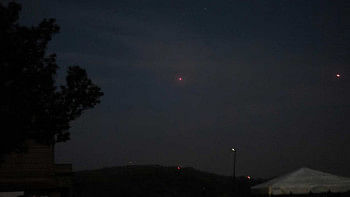Y2K bug still buzzing, say Indian software experts
NEW DELHI, Jan 5: Indian software firms, who reaped a small fortune from the Y2K compliance industry, poured scorn Tuesday on suggestions the whole thing was a hoax, warning problems could surface later in the year, reports AFP.
Dewang Mehta, chief of India's 520-member National Association of Software and Service Companies (Nasscom), defended the spending on Y2K repair jobs.
"Indian software experts worked very hard to ensure Y2K was the last headache of this century and not the first for the new millennium," said Mehta.
"I don't know anyone who's spent any time on the problem at all who doubts that, had the effort not been made, had the money not been spent, we would be in a very different situation here."
Sudhir Manchanda, who heads the Confederation of Indian Industry's Y2K control centre echoed Mehta's views.
"Some people are now saying the whole Y2K bug was a hoax because there are not 'enough reports' of computer catastrophes," said Manchanda.
"The only reason India has rolled over to 2000 without Y2K problems is that for once the government, business and software industry banded together to test millions of computers and tackle the problem head-on."
Software experts had identified small businesses as a sector at high risk of disruption because of relatively low levels of remedial work done to correct problems predicted over the date change from the 1900s to the 2000s.
Older computers working in two digit dates, unable to distinguish between 1900 and 2000, were believed to have been at risk of shutting down.
"There is no crisis because small businesses in India have a low level of automation," said Manchanda.
"Their non-compliance does not affect other computer systems as they are not online."
Nasscom warned that even though Indian stock markets, banks, businesses, airlines, power stations all successfully rolled over to 2000, 50 per cent of the problems could hit over the rest of the year.
"Another test day is rushing towards us -- February 29, 2000 -- which might cause computer glitches," said a Nasscom official.
Some computer calendars do not include February 29.
Nasscom says companies would b wise to pay attention to the possibility of the leap year date, not least because the Y2K bug might be quietly undermining data bases.
"Similarly, October 10, 2000 is the first eight digit number of the new millennium and might cause some problems," added the official.
Nasscom said Indian software firms would continue to work on Y2K related problems for the rest of the year.

 For all latest news, follow The Daily Star's Google News channel.
For all latest news, follow The Daily Star's Google News channel. 



Comments